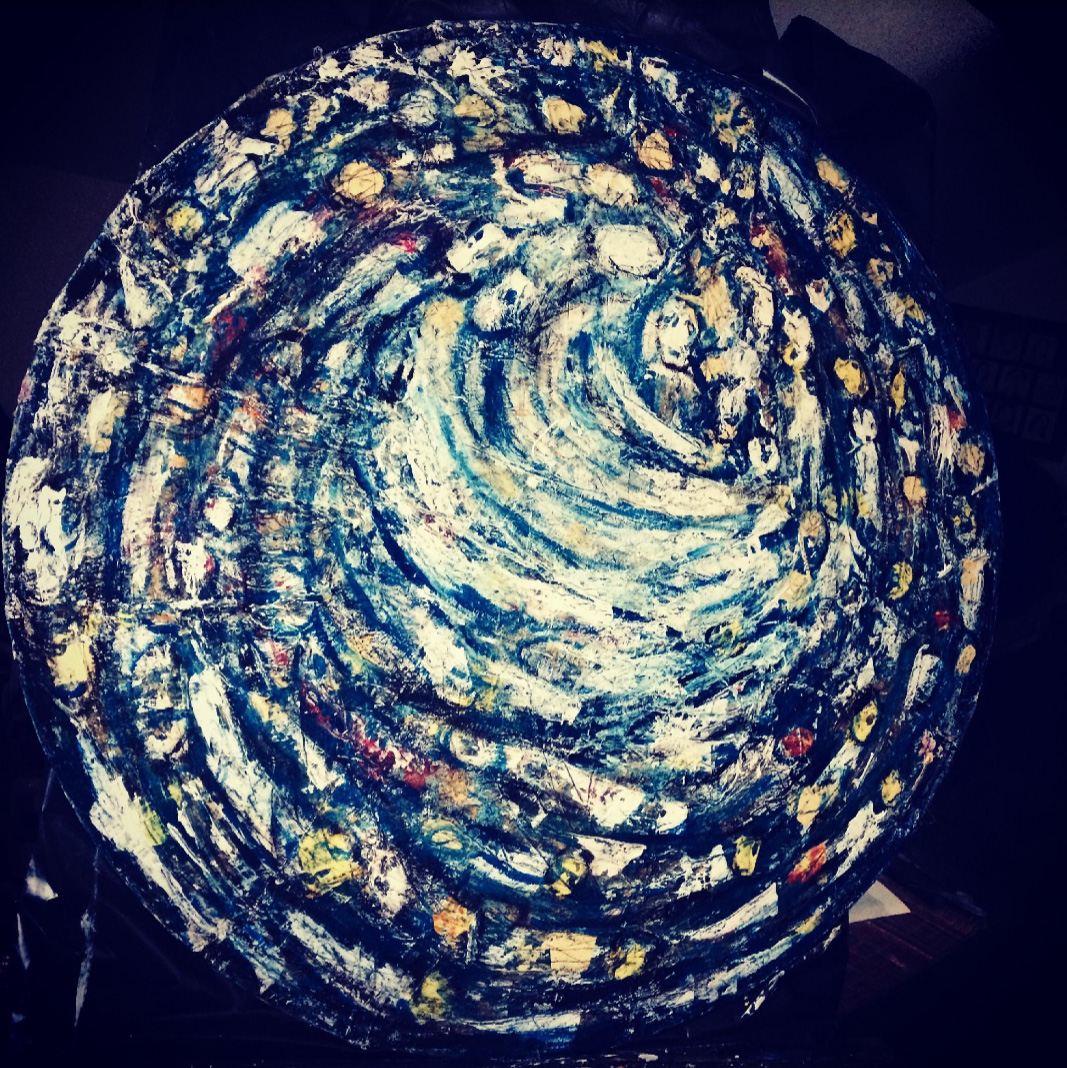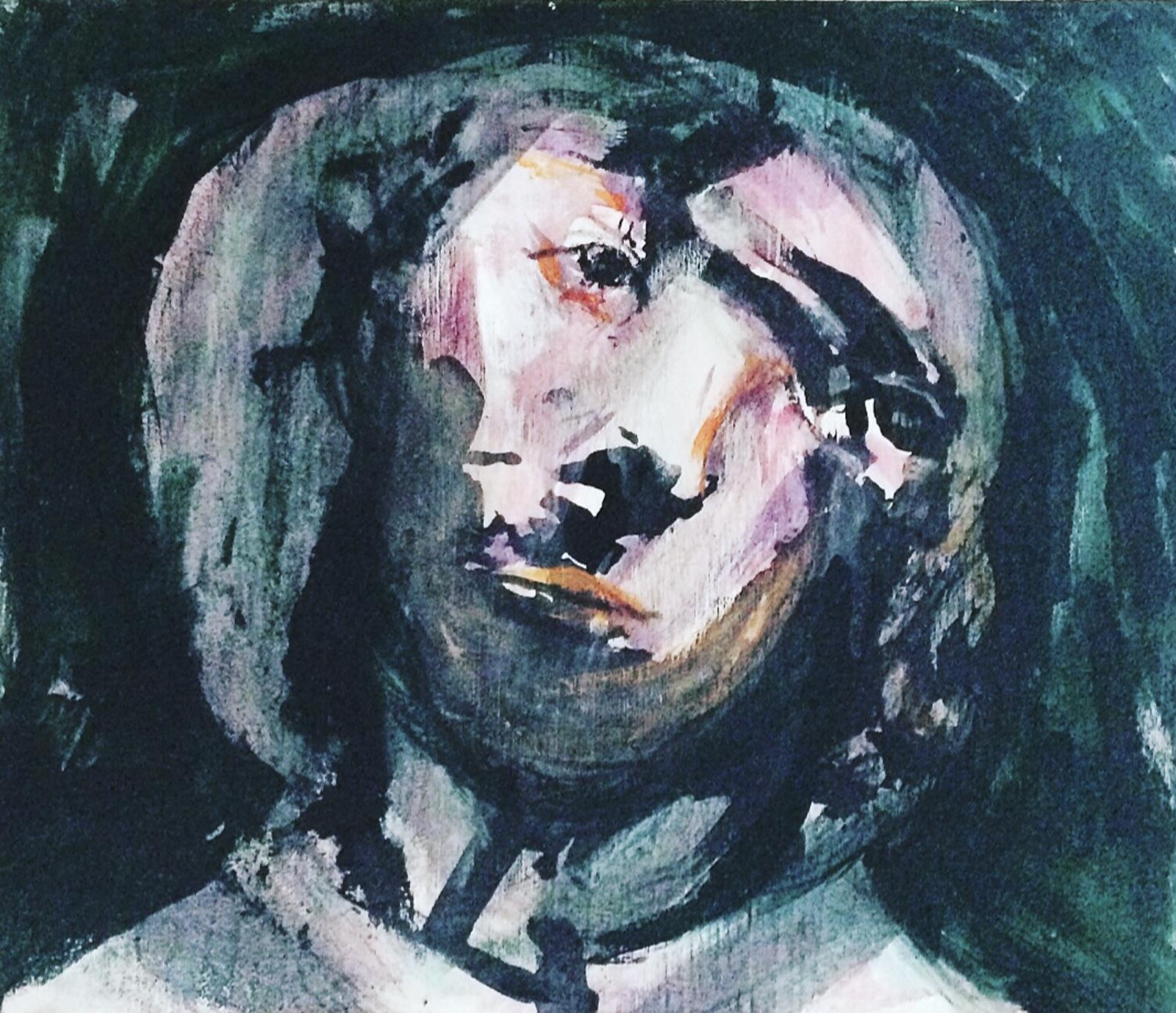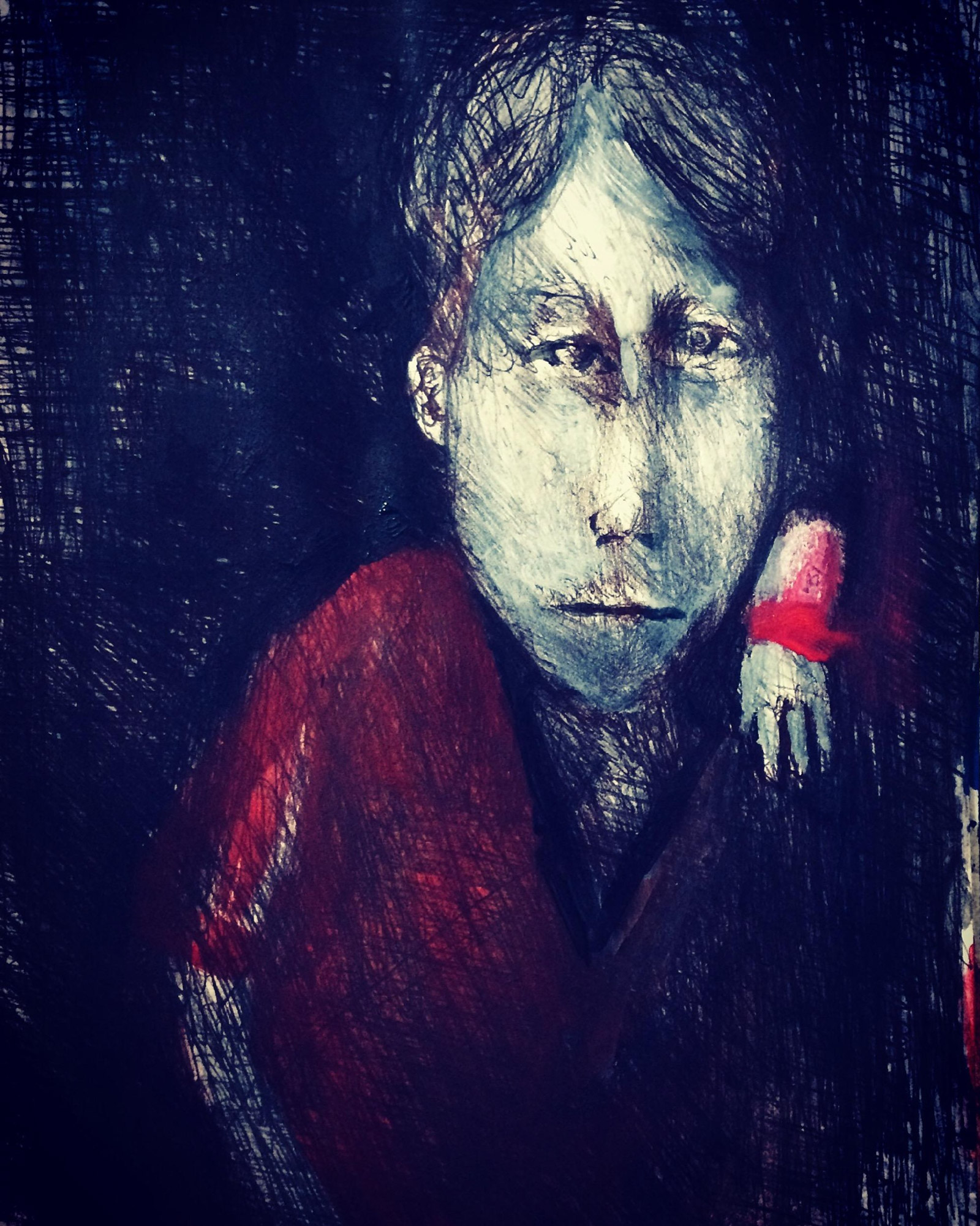'There are many ways to be Cambodian'
Longing for lost childhoods and lost relatives, snatched away by war and conflict; inequality in Cambodia and the great urban-rural divide. These are just some of the themes explored by Cambodian-American author and artist Chath pierSath in his latest collection of poetry
Poems by Chath pierSath, Intro by Alastair McCready
“There are many ways to be human, as there are many ways to be Cambodian.”
This is the tagline on the website of Cambodian-American author and artist Chath pierSath. It’s a recurring theme in his work, a thread that runs through his reflections on Cambodian society in his most recent poetry collection, On Earth Beneath Sky.
In The New Cambodia, he observes livestock strapped to motorbikes side-by-side with Range Rovers – physical manifestations of the Kingdom’s uneven development in recent decades, most easily seen in the great disparities of fast-developing Phnom Penh. In Campuchea and Sorya the Sun, he turns his gaze to rural poverty in tales of land grabbing, malnourished bodies and disease from his home province of Battambang.
pierSath’s reflections on the Cambodian experience draw from his own a story of displacement and longing. He was born in western Cambodia in 1970, surviving the Khmer Rouge years before crossing the Thai-Cambodian border in 1979 with members of his family to Aranyaprathet Refugee Camp. It is these early years of lost childhood innocence, interrupted by the horrors of the late 1970s, that he yearns for in The Way I want to Remember My Cambodia – the snatching away of his homeland that he laments in I Lost You.
Supported by an aunt, pierSath emigrated to the US with his older brother and sister in 1981, living first in Boulder, Colorado. Today, the Cambodian-American experience informs much of his poetry, with pierSath enjoying a bucolic existence in rural America, living and working on a small family farm in central Massachusetts.
But the pain of those early years has left an indelible mark on his character. He would lose his father to conflict in Cambodia in the 1970s, while his mother, still in Cambodia, would fall ill and pass away when he was 12 years old – the two separated by thousands of miles.
A pain he explores in Mother, I’m Coming Home, he recalls her wish for him to have a better life, as well as a promise of a reunion that would never come.
“Go where you’ll be safe. You’ll grow up to have better days. Return when you can. We will soon meet again.”

I want to remember how I was free to run in the field eyeing the sky—my handmade kite flying high, loving the wind, loving the clear white cloud.
I want to remember how I was free to run in the sun,
free to own and roam the fields, free to walk and sing
to myself or to the God of the hills full of trees, to green rice paddies, to the pond’s pink lotus and muddy swamp, to the crystal tune of an overflowing river, to the rainbow of my felicity and the wild dogs’ red mating call.
I want to feel the flirtatious air caressing my naked body
in childhood innocence wrapped in the arms of my brothers.
I want to remember the shrilling cry of crickets hidden
under broken planks, the way I went earring for them
in the mist of dawn to capture them in my jar, my chase
after dragonflies, my slingshot pebbles passing birds, and how I spent day after day fishing, netting grasshoppers in the sun, its burning heat, and the times I searched for beetles in
cow manure while herding cattle and water buffalo.

I recall my mother’s cooking fire, her salted-fish grilled
on burning charcoal, the smell of her boiling stew, her sharp knife drumming the cutting board. In her outdoor kitchen, the smoke of her art hissed out of her wok, moving into the air like a cobra shedding its skin on our fence.
I want to feel my dark Cambodian skin crack from playing with earth, to see my boyish brown eyes staring at green bamboo, to feel myself leaning to soak in the fragrant yellow-flowered hills. I want the serenity of blue ponds and the white river of childhood, and to feel
the wind wiping away the dew on my body.
I want my peasant home, to still be in that village among
the surviving people on that laboring earth where I was born.
My Cambodia, tell me again the stories of how the old ghosts take possession of human souls, how monsters shape the art of death. I want to hear how the Goddesses turn what is ugly into something beautiful.
Make me part of that secret. Let me dance in your sun.

Sixteen years is too long.
Mother, I’m coming home
To collect your bones.
The war that killed your husband is through.
The killing fields are done.
I still wake to the sounds of guns.
Sixteen years is too long.
I am home, mother, to collect your bones.
Your voice telling me to run:
Run, run, run ‘til you’re free,
Run as far as you can.
When the war’s over,
We shall meet again.
I look for you in the things I had known—
Bamboo bush and the mango trees you had grown.
There’s nothing but despair in your bones.
Run from the firing squads of heartless men.
Go where you’ll be safe.
You’ll grow up to have better days.
Return when you can.
We will soon meet again.
I am home, mother, to collect your bones.


A man and his machine move a load of bouncing pigs
Squeezed tightly in a bamboo basket on the back of his moto.
Chicken passengers strung beak down, legs tied to wooden bars.
Another man holding a sheet of glass while a friend drives.
A man on a heap of mangoes sleeping as the truck honks in traffic.
Children perched on daddy’s lap while he drives, the mother behind.
Cars take road space, in a hurry, pounding their horns.
It’s hard to like anyone who drives a Lexus or a Hummer.
Hard to avoid massive Range Rovers, SUVs blowing smoke.
One man or a woman to a car, slowly inching in traffic.
This is progress. We know wealth and power.
Machines symbolize man’s greatest achievements.
His money can buy whatever he wants.
Everything we don’t produce, there’s a desire waiting for it.
Once bicycles and pedestrians, cyclos or rickshaws, now big cars,
Motos and tuk-tuks taking people somewhere, home, from work,
To market, the roar of harmony or chaos, new sound of Phnom Penh, Death-sirens, three dead a day, blood on asphalt, tar melting.
We move on, continue, forward, leaping into the future,
Never turning, will never turn back, just go, flow with the current,
Go with the traffic, don’t stop, don’t hesitate,
Make something out of your life,
Do something for a change, don’t be stagnant. Don’t dwell on your pain. Suffering comes, as Buddha says, with a body.
Just think about survival, think about life,
What you can do to live a good life. Stay in motion,
Look ahead, don’t fret with the past, stay focused on the future,
The present is now. How to be rich? How to be free?
Is just another form of oppression.
The point is not to think, but to live—
In spite of everything, we are not going to be stuck in traffic.

The color of dark clay.
His face
His jawbone knife
His forehead skull
His head larger than his body
His starved flesh.
That night he slept under guava trees
On a bamboo bed beneath the stars.
His older brother feared he would infect the children
If he let him in his thatched house.
He died with his eyes open,
The virus spread and pushed his stiff cold feet.
It was silly to be monogamous.
There was no point to quit drinking or smoking
That night he slept under guava trees.
Her long black hair in braids and in bundles.
Rice stalks wind-swept under blue skies.
She weeps in shouts and screams.
Her earth torched ashen. Her forest was raped and pillaged.
Capitalists who sold her land, took her home, breathe easily,
Polluting her water, poisoning her only livelihood.
She cries, hands toward the sky, choking in her own blood.
Mother Earth releases her hair to bring a downpour, but even her hair
Is thirsty, from an ancient tale, her old magic can’t change old greed.

Bumpy Route 6, Battambang—Poipet,
Mango and banana groves, scent of papaya ousted
From a virgin’s breast, her blood old men seek to drink
To remain youthful, this land of pities and insatiable suffering.
Enough of the fallow fields, the lonely houses on stilts,
The exhausting blue skies, past graying noon, heat waves
Into slumbering sleep, combing down like strands of hair.
Thirsty, water and a passion-fruit shake,
Fresh-squeezed orange juice, Fanta of childhood, Chromosome’s last-minute code
codified my wanderlust, Cursed to the life of a vagabond.
In a shared taxi, with women, first female driver
In a male-dominated trade,
Politics and drugs free to discuss among insulated like minds.
Her daughter, an addict, was jailed to get sober and clean.
The reticence of a mule, muteness of a small white elephant,
Marker left from childhood, village and boyhood,
Here, unrecognizable, a miniature carving of a holy creature,
Thought to be Ganesh-born of Shiva’s fashion and power.
A shop selling toys and farm tools.
Roadside Depot Tela gas station sits on a buried rice field.
Unleaded is less than two dollars a liter.
Servitude to master is the voice of a motor driver, barking.
New shops, food and gold chains, cell phones the poorest can buy.
Highway, asphalt paved, over a dirt road
Where mother & son took to the market,
Past a roundabout, the elephant in the middle,
Saying hello and bye, the child is said to
return—
The elephant waited all this time.
Moto driver stored between his legs my luggage
Full of books in English no one else could read.
He inched past rice fields, left and right, houses big and small, Shacks and bricked ones, a large public pond where people
Buy their water, stray dogs, and oxen crossing the road.
I looked for a big milk fruit tree, a brown wooden house
Built on cement stilt posts with a tin roof, where the local widow, Petite, with dark complexion lives. My sister.
In the Poipet district of speeding freedom and progress
Cars and trucks move democracy forward in a country
Once colonized and ruled by absolute power, Father god king
And Mother goddess queen in her squalid and pauper place.
The divide widens between the past and present. Charred leaves
And plastic smoke lift into the ozone. Slash-and-burn agriculture,
Fields and forest on fire, toxins from every house whirl up
Where the widows of war are mending their wounds.
The village’s only dirt road floods in the rainy season.

Their older children crossed illegally into Thailand in the night,
Squeezed like sardines for six hours in the back of a truck,
All covered, possibly to suffocate. The unlucky ones die.
The most physically fit survive to slave for bahts they send home
To the widows who watch over their grandchildren.
They become mothers a second or third time,
When they only wish to be free of screaming children
And chanting Pali to their death.
Wrapped in white like old nuns, they prayed
To be reborn into the better life they’ve earned.
One life after another, the same cycle, full of wishes to be good,
As if to be reborn is to pay for the crimes of a past life
Which they know nothing about.
The widows tell me how they had to run from guns and bombs,
From one firing squad to the next, hiding in trenches, waiting
For the war to quiet down so they could eat and sleep.
A stray bullet bounced and hit one woman, entering
Her left shoulder and throat. She lost her voice and now whispers:
Husband died of an illness.
Husband died of starvation.
Husband died during the Khmer Rouge genocide.
Husband shot dead by a thief in the night.
Husband died by stepping on a landmine.
Husband died of a curable disease (no clinic or hospital to treat him on time).
Husband died of high blood pressure.
Husband died of TB.
Husband died of malaria.
Husband died of AIDS.
Husband died of diabetes.
Husband died and left me with nothing.

Father King now bronze, a statue, breathing the city’s smog.
In bronze suit and shoes, he’s on guard, looking at his handiwork,
The park full of Chinese taking photographs of themselves.
A bird on his head, a black dot at rest, drops on his bronze hair.
Up close, His Majesty’s metallic face looks like someone else.
The King I knew was small and short with a chirping voice.
I bowed to him once in the palace, shaking his hand.
He was only a man just like me,
A mortal with an expiration date on his breath.
When mine expires, we’ll meet again, perhaps
On a more equal term—in death, all men are created equal.
His life-sized statue is taller and imposing,
Standing authoritarian and divine, his hands,
One over the other, humbled not by choice.
He composed music in French, English, Mandarin,
And Khmer about his squalid kingdom, full of mad men
And greedy dictators and oligarchs. The feudal chain
Of French colonial perfume lingering in Ministries.
His back now turned to Independence,
That monument once the tallest, now a miniature figure
Among skyscrapers of modernism.
King and monument, together at last,
Now visited mostly by Koreans and Chinese.

I lost you then and now, even today, I’ve lost you.
Every day, not a day when I had not thought of losing you.
I think I’ve lost you to the future, too.
I beg and pray, but know I must lose you, the way
A snake sheds its skin, a crab goes soft for another stage of life.
I lost you to the beauty and glory of flowers others desire.
They want you because you’re beautiful, fragile, vulnerable.
The repressed lips are voiceless, purple.
Death colors, red and black, death of just king and queen,
That colonial mirror of a faraway place sailing westward,
Taking your breath into exile. Money, power chained you to greed.
Mango sap sealed you shut with your fearful grieving.
You flower what others want, but I cannot smell it even if I try
With good intentions. I can’t give you my eyes.
I cannot give my ears, my arms or legs.
The language of the bombers and the colonialists,
Fascist conquerors, insatiable capitalists, and thieves of antiquities
Erased all words I had learned in your umbilical cord.
There’s no country on this planet not touched by cruelty.
I am changed, formed and shaped by this consciousness, by blood-
Rivers I floated on and crossed. Innocence gone.
I tried to give what I could, but what I’ve seen and heard,
Where I had been and what I had done, are nights to your days.
No way to explain in a tongue I don’t have,
The sounds and lullabies I’ve forgotten.
Lost you to the death-stench and skull piles in genocide museums.
I lost you to the dogs eating human feces, who hunt for your soul,
Always hungry, the way I hunger for you.
The rivers and streams sang your name.
Hey, hey, matriarch, beautiful spirit earth,
The ancestral callings you turned to
Gave me no comfort in the language I was not born to speak.
I’ve lost my country, mother and father.
I’ve lost the freedom and imagination of a child.
I’ve lost you today to the bloodthirsty mosquitoes.
War-makers are coming for your bones,
Carrying guns made by robots.
Coming for your trees and water and your burial grounds,
Where every bit of your people will be bought and sold,
And all the rivers will dry as they are dammed for electricity,
All the fish will die,
The drought will even take your tears.
On Earth Beneath Sky can be purchased here from Loom Press.


